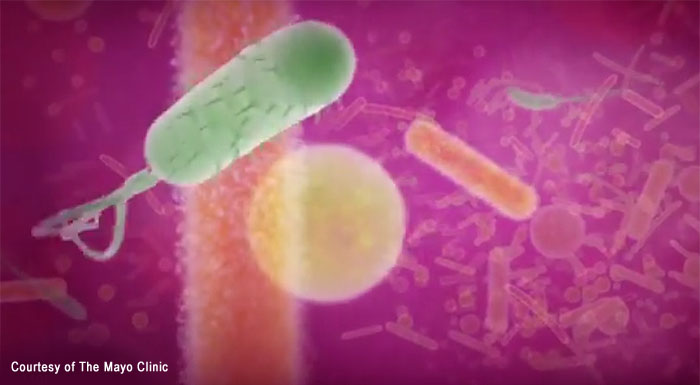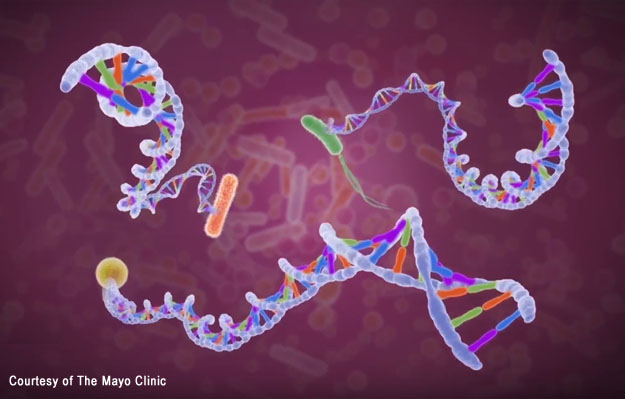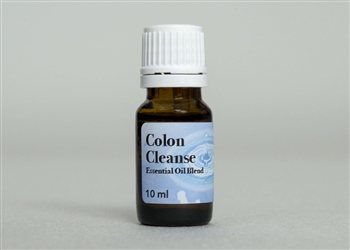Understanding The Brain-Gut Connection
How the Health of Your Microbiome Supports Your Overall Health
What Is "The Second Brain"?
The Gut Microbiome and Major Depression
How To Maintain a Healthy Gut Microbiome
What Is the Gut Microbiome?
The gut microbiome is the name for the community of microorganisms — bacteria, fungi, and viruses — that live in your digestive tract, having been established at roughly one to two years after your birth.
While many people know little or nothing about their microbiome, this community is incredibly important, and the health of your microbiome affects the health of your entire body, including your mental health. A robust, well-balanced microbiome is crucial to maintaining a strong immune system and a well-functioning digestive system; an unhealthy microbiome can lead to issues such as constipation, irritable bowel syndrome (IBS), hormonal imbalances, mood disorders, and more.

The Gut: Why Is It Sometimes Called "The Second Brain"?
Many in the medical community refer to the gut as the body's "second brain" because it houses the enteric nervous system (ENS), a large part of the peripheral nervous system (PNS) that can control gastrointestinal behaviour independently of central nervous system (CNS) input. Communicating directly with the brain through the nervous system, hormones, and the immune system, the enteric nervous system "plays a key role in certain diseases in our bodies and in our overall mental health".
"The second brain" has been expanding as a term in medical discourse in recent years as more research is undertaken to identify ways in which the gut microbiome may directly impact our mental and emotional health.
Connection between the Gut Microbiome and Major Depression
In 2017, over 17 million adults in the U.S. experienced at least one major depressive episode, and many more suffer from other mood and anxiety disorders. More than 264 million people worldwide live with depression, making it the leading cause of disability worldwide.
Mood disorders have a significant impact on the lives of many, so emerging information about the connection between the gut microbiome and major depressive disorder has incredibly important implications that may affect both diagnosis and treatment of depression.
Published in the journal Nature Communications, a 2020 study conducted by several leading French research institutions found that transferring the gut microbiota from mice with unpredictable chronic mild stress (or UCMS, used in this study as a mouse model of depression) to healthy mice resulted in similar depressive-like behaviors in the previously healthy mice.
The scientists in this 2020 study also discovered a decrease in the levels of some lipid metabolites and endocannabinoids in the previously healthy mice after the microbiota transfer. Endocannabinoids are vital to your body's proper functioning. They "coordinate a communication system in the body which is significantly hindered by the reduction in metabolites... If there is an imbalance in the gut bacterial community, some lipids that are vital for brain function disappear, encouraging the emergence of depressive-like behaviors."

Mice who had the UCMS microbiota in this study were also found to have reduced levels of Lactobacillus bacteria. Researchers were able to reduce the depressive effects of the UCMS microbiota by increasing endocannabinoid levels and increasing the amount of Lactobacilli in the gut microbiomes of the mice.
Another 2020 study, published in the journal Science Advances, analyzed the fecal samples of 311 people — 156 patients with major depressive disorder (MDD) and 155 healthy controls. The study found that MDD is characterized by specific disturbances of the gut microbiome, bacteria, and fecal metabolites, and researchers were able to single out 3 bacteriophages, 47 bacterial species, and 50 fecal metabolites that were significantly different in people with MDD compared to healthy people.
The findings referenced above are significant. The more we know about the brain-gut connection, the more potential there is to use the gut microbiome for diagnosis (researchers have already developed a biomarker panel based on the results of this study to be used alongside clinical interviews) as well as treatment of MDD and other mental health disorders.
It is important to note that the brain-gut relationship is both "complex and bidirectional". While these results indicate that microbiome disturbances may influence mental health, mental health disorders may also cause changes in one's diet and lifestyle that in turn have a negative impact on the gut microbiome. More research is needed to explore how much of the brain-gut health connection is the result of causation versus correlation. However, the two studies referenced above are a substantial place to begin, and the theory that improving one's gut microbiome health can treat mood disorders is very promising.
How To Maintain a Healthy Gut Microbiome
As Shaohua Hu, co-author of the study published in Science Advances, says, "To keep gut health is to keep mental health.".
There is growing evidence that this simple concept is true. With that in mind, here are my suggestions on steps you can take to maintain a healthy gut microbiome:

- DIET — I recommend following the diet laid out my book, Ten Days to Optimal Health. Eat plenty of fruits, vegetables, protein, and healthy fats, and stay away from gluten, pasteurized dairy, and sugar. I also recommend a diet that is rich in probiotics, which you can find in foods such as kimchi, sauerkraut, and kombucha.
▶︎ For more dietary advice, explore Ten Days to Optimal Health in it entirety.
- ORAL PROBIOTICS — If you aren't getting enough probiotics from your diet, your microbiome is especially lacking due to antibiotic use, or you have other unresolved microbiome issues, I recommend taking a daily probiotic such as Ortho Biotic.
▶︎ Browse All Probiotics
- COLON CLEANSING — Therapeutic enemas can be extremely beneficial to your gut microbiome. I recommend our 3-step enema series protocol. Each step in this series provides a different benefit for the colon:
Frankincense and Myrrh Goat Milk Soap in the first enema contains butyric acid, which is the primary food source of the cells that line the colon and helps maintain the stability of the gut microbiota. The oils in this soap also have anti-inflammatory properties.
OHN Colon Cleanse Essential Oil Blend in the second enema is a prebiotic, and mixed with sea salt, it helps balance your body's electrolytes and optimize for healthy bacteria.
 The third enema in the series, the coffee enema, helps to detoxify your liver and gallbladder.
The third enema in the series, the coffee enema, helps to detoxify your liver and gallbladder.
▶︎ Learn More about the Enema Series
▶︎ View Coffee Enema Instructions
- LEAKY GUT PROTOCOL — I recommend doing one round of my leaky gut protocol two times per year to support intestinal permeability health. The protocol involves a shake taken once per day consisting of one scoop of each of the following:
- Ortho Biotic Powder — Strengthens the gut lining and replenishes your natural stores of good bacteria to reduce inflammation.
- Ortho SBI Protect Powder — Strengthens the gut-immune barrier and stimulates the body's normal gut repair mechanisms.
- Ortho GlutaShield — Helps regenerate and maintain GI enterocytes while supporting the health of the intestinal mucosal barrier.
- (optional) Ortho CollaGEN Powder — Nutritionally supports cartilage, tendons, ligaments, fascia, and skin.
▶︎ What Is Leaky Gut Syndrome?

- HPA AXIS SUPPORT — A healthy hypothalamic-pituitary-adrenal axis (HPA axis) is also very important to the health of your entire body, and especially your emotional health. Standard Process Symplex F and Symplex M are excellent supplements that support the health of your HPA axis (your adrenal, pituitary, and thyroid health).
We also recommend using OHN Endocrine System Support Blend in suppositories and/or enemas to support the HPA axis and the endocrine system (see video below).
- HAIR TISSUE MINERAL ANALYSIS — To learn more about what's going on in your body that may be affecting both your physical and mental health, and about the health of your HPA axis, I recommend doing a Hair Tissue Mineral Analysis (HTMA), which gives you important information about your body's heavy metal levels, mineral ratios, hormone levels, and more.
▶︎ Why Is Hair Tissue Mineral Analysis an Exceptional Tool?
▶︎ All About Hair Sampling
OHN Endocrine System Essential Oil Blend for HPA Axis Support
Kristina Amelong, CCT, CNC discusses OHN Endocrine System Essential Oil Blend. This blend contains frankincense, sandalwood, and black spruce essential oils. It supports the health of the endocrine system, particularly the hypothalamic-pituitary-adrenal (HPA) axis, helps address hormonal imbalances, and can help improve emotional health. Kristina recommends using this blend in enemas or suppositories, or diffusing the blend in the home or workplace.
DISCLAIMER: This material is presented for informational purposes only and is not a substitute for medical advice, diagnosis, or prescribing from a licensed healthcare professional. We make no claim or guarantee for cure or relief of any specific symptom, medical condition, or disease when using any of the products or protocols referenced here. Consult with a licensed healthcare professional before altering or discontinuing any current medications, treatment, or care, or starting any diet, exercise, cleansing, or supplementation program, or if you have or suspect you might have a health condition that requires medical attention.
By Kristina Amelong, CCT, CNC
I-ACT-Certified Colon Hydrotherapist
Certified Nutritional Consultant